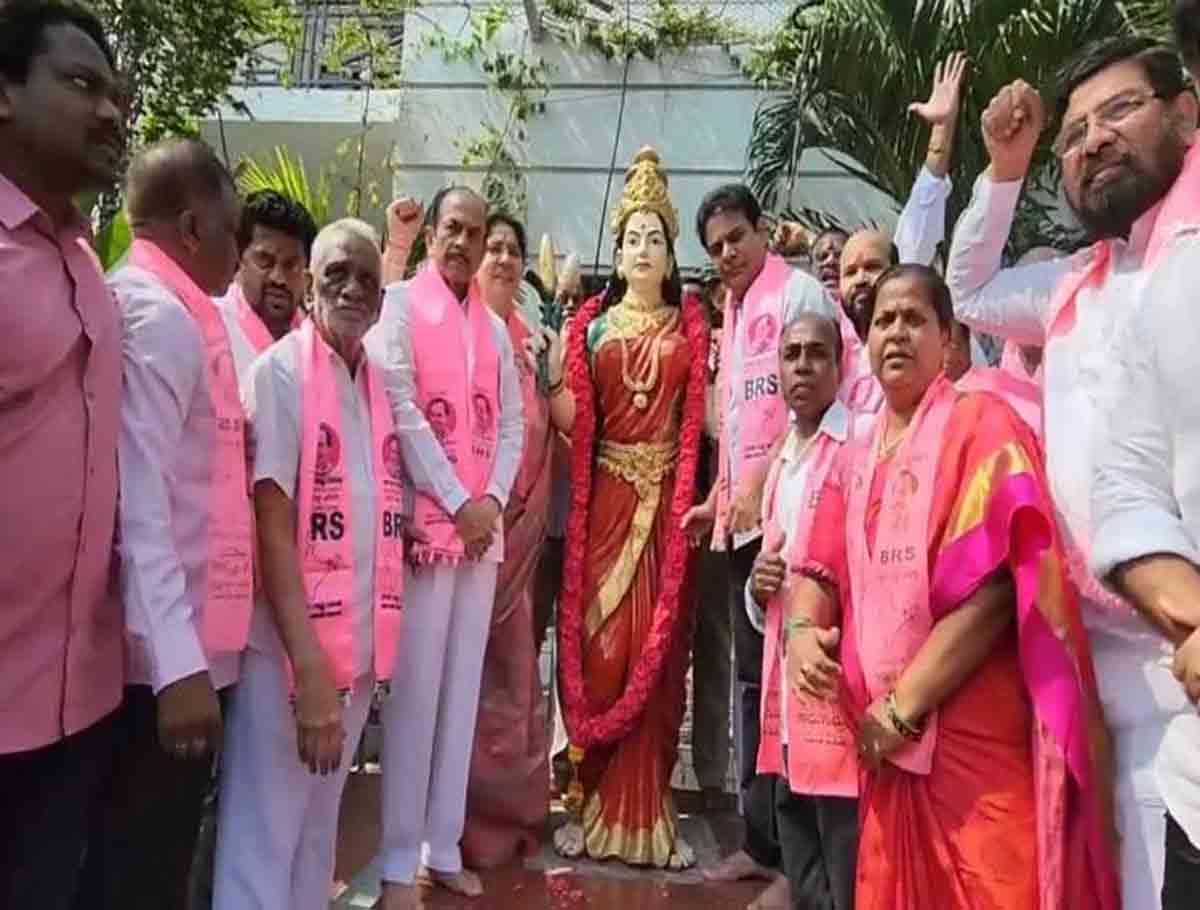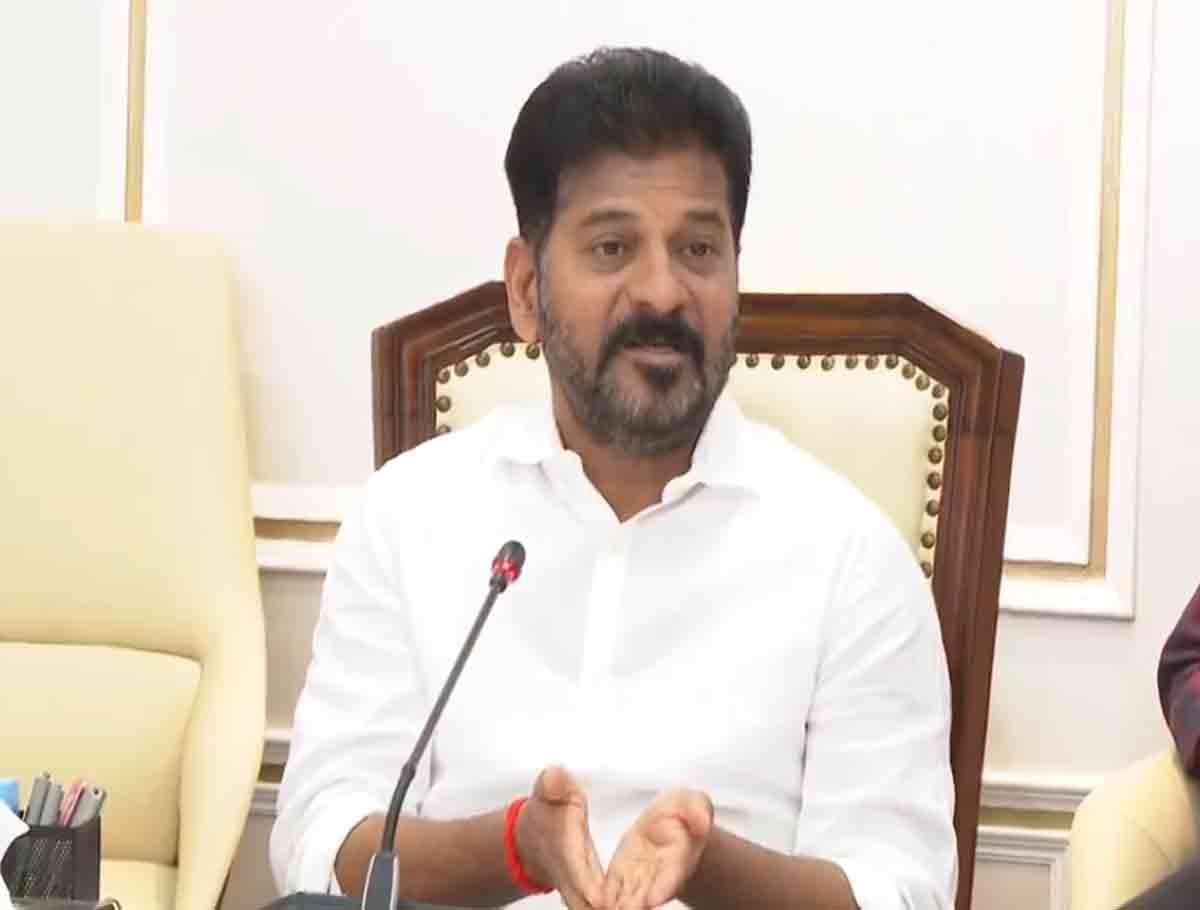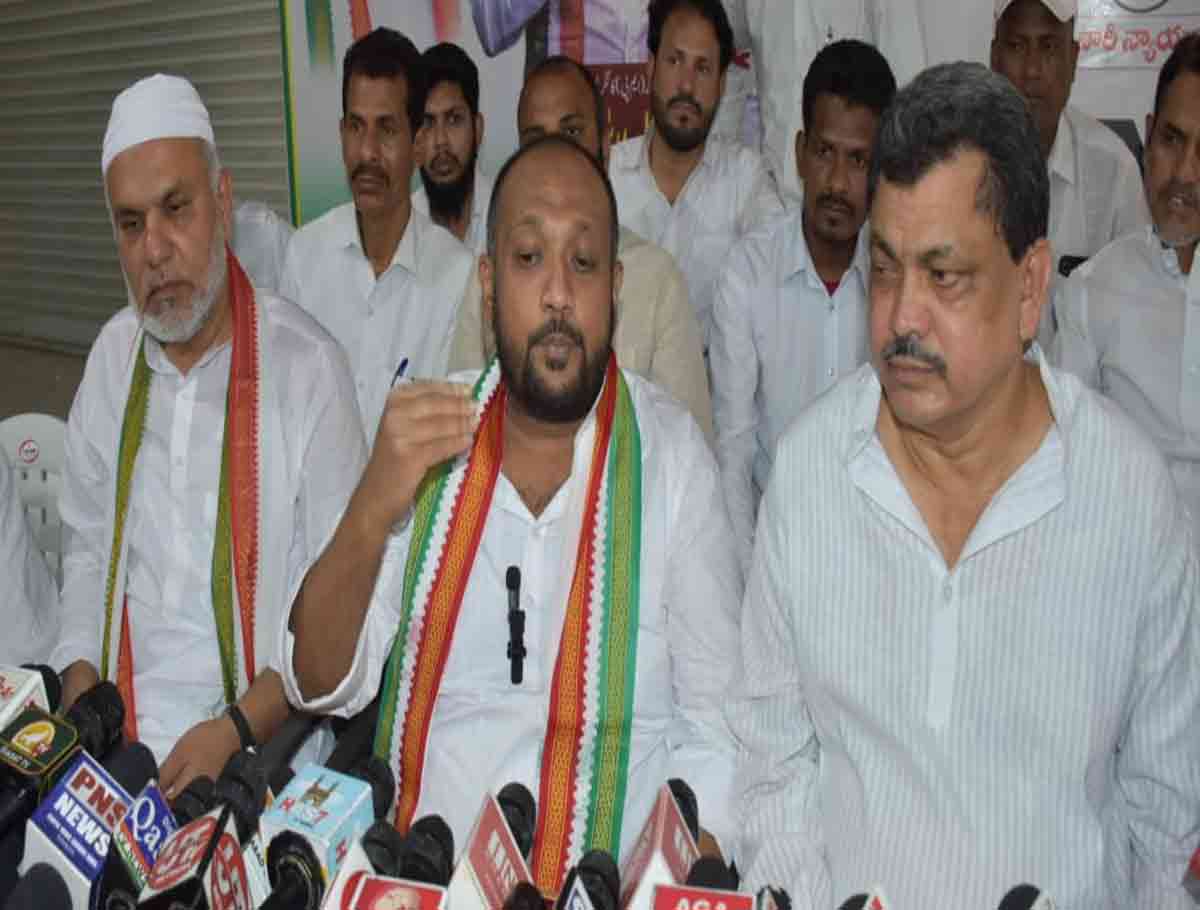Hyderabad, July 14 (Hydnow): In a statement written to the Law Commission of India on the issue of the Uniform Civil Code that could spark off a political debate, All India Majlis-E-Ittehadul Muslimeen (AIMIM) President Asaduddin Owaisi squarely rejected the need for Uniform Civil Code (UCC) in India.
Talking about the Uniform Civil Code, the AIMIM chief claimed that non-Muslims will be at a loss more than Muslims if UCC is implemented. He alleged that the implementation of the UCC is being done to erase the identities of Muslims from the nation. Everyone says that Muslims will learn a lesson through UCC. But this common law is not good for the entire country. If UCC is introduced more than Muslims, Hindus will be at a loss. They will suffer more. The Uniform Civil Code is a proposal to formulate and implement personal laws which will apply uniformly to all citizens regardless of their religion, gender, and sexual orientation. The code comes under Article 44 of the Constitution, which stipulated that the state shall endeavor to secure a Uniform Civil Code for the citizens through the territory of India. In the BJP’s 2019 Lok Sabha election manifesto the party had promised the implementation of UCC it come to power.
He urged the Law Commission to not allow itself to be made a tool for political propaganda simply on account of the approaching elections and to drop this enterprise. However, if this Law Commission wishes to proceed with this exercise it must do so with seriousness and in a meaningful way, by explaining what it means by a “Uniform Civil Code” and placing a concrete proposal for public comment giving adequate time for all stakeholders to respond.
Our country comprises communities as diverse and far removed as Advasis of madhya pradesh, Bodos of Assam, Madigas of Andhra Pradesh and Telangana, Siddi Muslims, Kutchi Memons, and Gujjar Bakwerwals of Jammu & Kashmir. Our Constitution gives each of them the right to conserve their ways of life and recognizes their personal laws and customs. I would urge this Commission to recognize that legislating away personal laws to follow some unclear goal of ‘uniformity’ will mean that it will undo the gains made over 73 years of working of our Constitution where each of these personal laws has been refined by our constitutional Courts through a syncretic process of evolution.
He reiterated that any attempt of creating a mandatory ‘Uniform Civil Code’ today, would go against Articles 19, 25, and 29 of the Constitution of India and undermine the intent and purpose of our founders behind Article 44 itself. In recognition of the layered, complex, and diverse societies that exist in India – the Constitution promised each community that it would be able to retain its religious practices, its cultural distinction and choose how it expresses itself and engages with the world. To deny these rights to the diverse peoples of this country is to betray a constitutional promise.
This position paper has been submitted in response to the Appeal made by the Law Commission of India. The appeal has appended questions on various practices associated with personal laws in India. However, it must be noted that while the Appeal states that the Law Commission hopes to begin a healthy conversation about the viability of a Uniform Civil Code and will focus on family laws of all religions, the appended questionnaire does not capture the stated intention of the Law Commission of India. Moreover, the scope of family laws in the country is far more complex and varied than is reflected in the questions circulated by the Law Commission.
Furthermore, the questions are designed in a manner that provides little social or legal context on the subject matter and requires respondents to answer questions in an overly simplistic manner, where, in fact, such questions have a significant import on the day-to-day lives of citizens. Therefore, the questions may not serve the purpose of having a comprehensive and inclusive debate on family or personal laws at all.
It is further submitted that the questionnaire also goes against the stated intention of the Appeal which states that the process of consultation will be undertaken with a view towards “ensuring that the norms of no one class, group or community will dominate the lone or tenor of family law reforms. this is reflected in the fact that the questionnaire primarily directed at purported practices of certain communities while ignoring significant practices observed by other religious/cultural groups. furthermore, it must be noted that the questionnaire is focused on purportedly discriminatory practices within a particular group while ignoring discriminatory treatment between groups.
Questions pertaining to the observance of personal law in India are extremely complex and cannot merely be limited to certain specific practices without accounting for the diversity in the day-to-day lives of citizens. Questions that impact the daily lives of citizens cannot merely give ‘options’ as responses without providing a comprehensive background as to the legal consequences of such ‘options”
He urged the Law Commission of India to review the existing set of questions and revise it accordingly to reflect an assessment of all existing laws in force that contribute to addressing “discrimination against vulnerable groups’ such discriminatory laws are not necessarily related to personal or family laws and often includes legislation that is designed to protect the privilege of certain groups
The Law Commission may also provide its own analysis on the meaning and import of the term “uniform civil code” in order to ensure that citizens have a clearer understanding of the scope of the debate that the Law Commission of India has decided to undertake. (Hydnow)
Next Story:
Now you can get the latest stories from Hydnow every day. Click the link to subscribe. Click to follow Hydnow’s Facebook page and Twitter and Instagram





